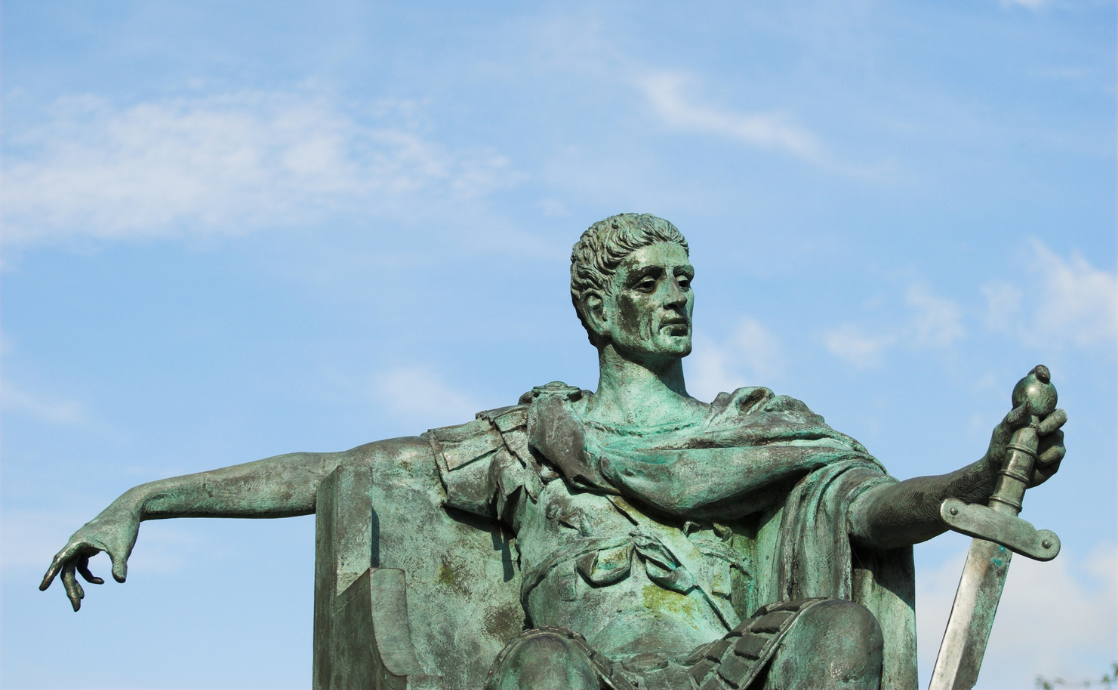Throughout history, pivotal moments have irrevocably influenced the course of religious thought and practice. One such moment is the conversion of Emperor Constantine to Christianity in the early 4th century. This event not only transformed the Roman Empire but also laid the foundations for the future of Christianity. In examining this historical conversion through the lens of Baha’i teachings, one can derive significant insights into the nature of religious evolution, the symbiosis between state and religion, and the imperative of unity among diverse faiths.
Contextual Background
The 4th century was a tumultuous time for the Roman Empire. Prior to Constantine’s reign, Christians faced persecution, their faith often regarded as a subversive threat to the imperial order. However, Constantine’s purported vision and subsequent conversion marked a watershed moment in which Christianity transitioned from obscurity to a dominant cultural narrative. This pivotal shift established an unprecedented reconciliation between the ecclesiastical order and imperial authority.
Baha’i Perspective on Religious Evolution
From a Baha’i standpoint, the conversion of Constantine exemplifies the principle that religious truth evolves in tandem with the needs of humanity. Baha’is understand that divine revelation is progressive; each faith builds upon its predecessors and reveals aspects of a singular truth suited to the era. This understanding posits that Constantine’s conversion was not merely an introspective moment for Christianity but rather a significant contribution to the unfolding narrative of spiritual development.
In the context of religious evolution, the Baha’i teachings emphasize the importance of recognizing the unity of all religions. The embrace of Christianity by the Roman Empire represented a critical juncture wherein a new phase of spiritual governance began to take shape. The Baha’i writings articulate that such moments in history should be viewed as the fulfillment of divine purpose, catalyzing humanity towards greater unity, understanding, and peace.
The Role of Authority: Ecclesiastical and Imperial
Constantine’s amalgamation of church and state presents profound implications concerning authority. Traditionally, the Baha’i Faith teaches that authority should reside in the collective, empowering the unity of believers rather than concentrating power within institutions or leaders. The Baha’i teachings stress that centralized authority, particularly within religious institutions, can lead to sectarianism and division. The historical precedent set by Constantine, who wielded sovereign power to influence religious practice, serves as a cautionary tale about the potential pitfalls of intertwining secular and sacred authority.
This examination highlights the Baha’i commitment to the independence of spiritual inquiry. Individuals are encouraged to engage with religious tenets critically while seeking consensus and collaboration across different faiths. The implications of Constantine’s conversion serve as a clarion call to Baha’is to advocate for the separation of church and state in contemporary society, reinforcing the notion that religion thrives best in environments free from the encroachment of political power.
The Quest for Unity Among Faiths
Central to the Baha’i Faith is the urgency of fostering unity among diverse religious traditions. The transformation of Christianity under Constantine is illustrative of the journeys and struggles each faith has endured over centuries. Baha’is believe that the visible diversity of faiths represents the multifaceted nature of divine truth—each tradition serving as a distinct reflection of the overarching will of God.
The conversion of Constantine should thus be perceived not merely as a singular historical event but as an emblematic reflection of the broader pattern of interfaith dialogue and cooperation. Baha’is are urged to look upon religious differences with a lens of appreciation rather than division. Hosting interfaith dialogues and collaborative efforts among religious groups can, and often does, lead to a greater understanding of shared values, fostering an atmosphere of peace. This is key to realizing the Baha’i vision of a cohesive global community.
Critical Reflection on Historical Narratives
The Baha’i teachings further advocate for a comprehensive and critical reflection on historical narratives. The transformation of Christianity through Constantine’s conversion invites scholars and believers alike to ponder the implications of historical events on contemporary belief systems. It necessitates a recognition of the socio-political contexts surrounding such events, and the ability to discern how these contexts can warp interpretations of faith over time. A Baha’i approach encourages an analytical view that sifts through historical complexities to extract universal principles applicable to present-day society.
Transformative Lessons for Contemporary Society
The lessons drawn from Constantine’s conversion are manifold and remain relevant in the current age. They compel believers to strive for inclusivity and understanding in a world fraught with division. As religious pluralism becomes increasingly pronounced globally, the call for dialogue is more urgent than ever. For the Baha’i community, this means actively engaging in efforts toward peace-building and collaboration, recognizing that the fundamental tenets of love, compassion, and unity transcend religious boundaries.
Moreover, the lessons of authority and power dynamics encourage mindfulness in how spiritual values manifest within societal structures. The historical entanglement of church and state epitomizes a cautionary tale for modern governance. The Baha’i teachings urge leaders and followers alike to adopt principles of collective decision-making that uphold the dignity and rights of all individuals, irrespective of their beliefs.
Conclusion
In conclusion, the story of Constantine’s conversion to Christianity, when viewed through the Baha’i lens, provokes profound introspection. It serves to remind us that history is not merely a sequence of events but a rich tapestry interwoven with lessons of unity, the importance of critical reflection, and the quest for collective wellbeing. As the world grapples with complex religious landscapes, the Baha’i teachings encourage an unwavering commitment to the principles of oneness and harmony that can bring humanity together, illuminating the path forward amidst the shadows of the past.
